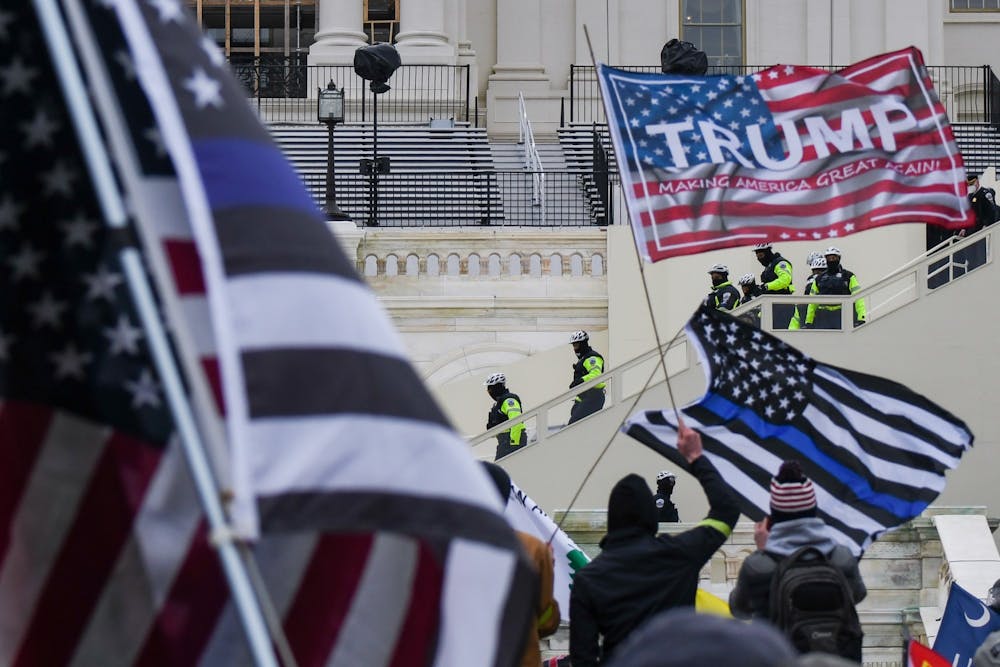We write together today as colleagues who share deep connections with the University’s Law School, as well as a deep appreciation of and concern for the fundamental structures of our constitutional democracy — one of those being the peaceful transition of power after a lawful national election. On several key issues in ordinary political debate, we respectfully disagree with each other, and we are members of different political parties. But on this we are united: Donald Trump’s post-election conduct, particularly his intentional and inflammatory role in fueling the violent insurrection at the U.S. Capitol on Jan. 6, was a flagrant and unprecedented breach of his duties as President. Such official malfeasance and dereliction of duty is precisely the kind of conduct that the Impeachment Clause of the Constitution is intended to address, and it is a crucial, nonpartisan imperative that the Senate vote to convict him so that he may never hold high office again.
In the months following the November 2020 election we, like most Americans, watched with increasing dismay and disbelief as the then-President of our nation refused to accept the reality of those election results even after over 60 federal and state judges, including many appointed by Trump himself, rejected as completely baseless all claims of a “stolen” election. After the Supreme Court ruled unanimously and decisively against him on Dec. 11, the President ratcheted up his baseless factual grievances and his incendiary rhetoric, breaching our fundamental constitutional tradition that the loser of a valid, lawful election must leave office peacefully and honor our democracy’s smooth transition of power. President Trump did the opposite, rallying his most extreme supporters to the Capitol on Jan. 6 by intensifying his lies about election fraud, and then encouraging them to use any means necessary, including violent occupation of the Capitol building, to prevent Congress from performing its constitutional duty to certify the valid election results.
Before and during the Capitol insurrection, President Trump failed to faithfully discharge his duties as chief executive and abused and demeaned the substantial powers of that office. This fact is clear and not partisan: a large and growing number of constitutional law experts, political commentators, and leaders in the legal profession agree that Trump’s behavior was a paradigmatic case for impeachment and conviction. Following through on such a sanction is important even though he no longer holds office, both to ensure he never again puts the American public at grave risk and to send a clear message about our core democratic values. The past year has shown that the rule of law does not run on autopilot as a self-sustaining principle — it requires active support, reform, and protection from all those who would live in a stable democracy, whatever our ideology or background. As lawyers and citizens who hold a mix of optimism and concern about our venerable but imperfect democracy today, we join with many others in calling on the U.S. Senate to take a step forward by rendering Donald Trump a vestige of the past.
PAUL G. HAAGA, Jr., is a 1974 Law and Wharton graduate. He is a former chair of the University of Pennsylvania Carey Law School’s Board of Advisors, former chair of Capital Research and Management Company, and, at different times, former Chair and acting CEO of National Public Radio. THEODORE RUGER is Dean and Bernard G. Segal Professor at the University of Pennsylvania Carey Law School.









